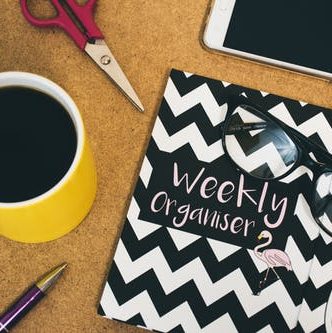
Healthy Study Habits for Students
A #Reclaiming2020 Thread
School can be a lot for students under the best of circumstances, and this is equally as true for grad students as it is for kindergartners

Burnout, Screen Fatigue, and Other Anxieties
Mental health, establishing healthy study habits, and knowing how to find an appropriate balance is something we put a lot of focus on her at TNN.
Our students, especially in the US educational system, can oftentimes be put under extreme amounts of stress, and are very rarely given the tools to know how to deal with it. Even more so now during the age of COVID as classrooms shift into bedrooms and the lines between ‘study’ and ‘sleep’ become blurry at best.
Identifying the early stages of burnout (difficulty concentrating, poor sleep quality, irritability, eye strain, and more) is crucial to help curb it’s effects.
Knowing When to Walk Away
Burnout is something that is more often associated with high paying executive positions or even online content creators. But it is a common experience in all walks of life. Any time you expend more effort than you receive value from, you a prone to burnout. That could mean working at something for an hour and not making as much progress as you would have liked, or it could mean studying for months without feeling like there is no return.
To recognize if you are approaching or at risk of burnout, here are a few resources that can help.
The Tell-Tale Signs of Burnout from Psychology Today
Burnout Self Test from Mind Tools
Burnout Prevention and Treatment from Help Guide
Productive Procrastination
Procrastinating one activity by performing another is a trick as old as time. It’s why students who have a dreaded assignment suddenly find themselves with one thousand and one other little mindless things to do.
And while procrastinating something at all costs can easily develop into self-sabotage, there is a way to use that procrastination instinct for good.
If you are staring blankly at your screen, don’t know where to start, or just otherwise fighting tooth and nail to focused … stop fighting. Frustration and anxiety make focusing on a new subject even harder and that natural resistance you feel towards getting into a project can sometimes (not always) be your bodies way of telling you that you need a break.

So instead put on a ten-minute video, podcast, or music playlist, and use find a healthy use for that procrastination energy. Like;
By giving yourself an intentional ‘break’ that is still productive, you can start to create healthy habits around work-life balance and recognizing when you need to step away.
Setting Healthy Boundaries
As we mentioned before, with so many students performing some or all of their academic duties from home, the lines between ‘school’ and ‘no school’ can get kind of blurry. As anyone who has ever tried to work from home before can confirm, that is a sure fire recipe for burnout.
Creating physical or mental space where you can flick on and off in work/study mode is key to setting healthy boundaries, achieving a balanced lifestyle, and long term success. We all know the age old adage of the unhappy employee or executive who keeps bringing their work home with them. But what happens when the work starts at home with you as well?
There are a few ways to help deal with this but none quite so effective as creating a physically separate space for study time. Setting your desk against a wall or window so that you are less distracted by other stuff in your room, working in a separate office space, or working at the dining room table, assuming you have a supportive household, are all valid options.
It can also help to set time restrictions. Parents can enforce this by breaking up study time with schedule meal times, but also by putting a time limit on school stuff. If school work HAS to be done by 8pm, then it leaves students time to unwind and helps create that space. It also helps to include regularly scheduled breaks throughout the day. I find that I can rarely focus for more than 3 hours at a time, so I plan walks, kickboxing, or meal prep time around those gaps accordingly.
Limit Screen Time
By now we all know how bad starring into our screens for hours on end can be bad not just for your eyesight, but also for your circadian rhythm, your general physical well being, and even our mental health. This is even more true for younger kids whose brains are still developing.
In a classroom setting, teachers of younger students will routinely break up longer periods of sitting with short periods of movement. This same concept can be easily applied to screen time as well, serving a dual function here as screen time is typically relatively stationary.
Schedule regular intermissions to get up, walk away from the screen, maybe get a snack or go to the bathroom or even take a little walk (this is easier to enforce if you have pets). Do anything and everything that is not related to a screen (computer, cell phone, TV) for at least ten minutes in order to allow your eyes to rest and give you a break.
Print notes or use physical study guides when possible. Take notes on paper instead of in a tablet. Zoom your classes by connecting the computer to a TV screen or larger monitor but further away. And, whenever possible, choose options that are physical rather than digital. We will never be able to completely walk away from our screens, they are too valuable a resource. So limiting their influence where we can is a big help.
There is still a lot of the school year left, and much of the world is still in a constant state of change. As we adapt to different circumstances and try to build good habits, it is important to be kind to ourselves, listen to our bodies, and take steps to protect our mental and emotional health, particularly as students. Building good study habits and setting healthy boundaries is just a small part of that, but it is a part that we can all work on a little bit every day.
Check out this and more original content available every week at TheNerdyNanny.com by subscribing to us on Facebook or Instagram.
You can also check out Eve Daniels, author of The Nerdy Nanny books, on YouTube where she gives writing and academic advice as well as updating you on all of her latest and upcoming projects.

May I have information on the topic of your article?
I appreciate your creativity and the effort you put into every post. Keep up the great work!